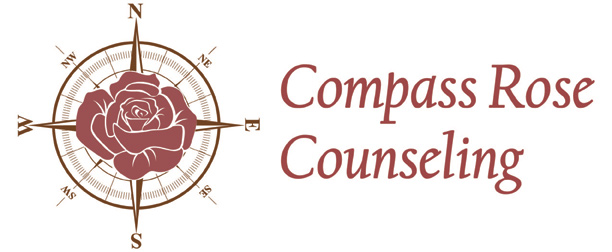Compass Rose Counseling Services
Types of Therapy

Brain Synchronization Therapy (BST)
Brain synchronization therapy is a way to help defuse the emotional responses to past incidents. Similar to EMDR, the brain synchronization therapy used here asks the patient to envision the past and, without having to reveal details to the therapist, uses guided eye movements to separate the memory from emotion. This reduces the distress caused by the memories and helps clients move past traumatic experiences.

EMDR
EMDR (Eye Movement Desensitization and Reprocessing)is an information processing therapy that helps clients cope with trauma, addictions, and phobias. During this treatment, the patient focuses on a specific thought, image, emotion, or sensation while simultaneously watching the therapist's finger or baton move in front of his or her eyes. The client is told to recognize what comes up for him/her when thinking of an image; then the client is told to let it go while doing bilateral stimulation. It's like being on a train; an emotion or a thought may come up and the client lets it pass as though they were looking out the window of the moving train.
Learn More about EMDR Therapy - EMDR International Association (emdria.org)

Cognitive Behavioral (CBT)
Cognitive-behavioral therapy stresses the role of thinking in how we feel and what we do. It is based on the belief that thoughts, rather than people or events, cause our negative feelings. The therapist assists the client in identifying, testing the reality of, and correcting dysfunctional beliefs underlying his or her thinking. The therapist then helps the client modify those thoughts and the behaviors that flow from them. CBT is a structured collaboration between therapist and client and often calls for homework assignments. CBT has been clinically proven to help clients in a relatively short amount of time with a wide range of disorders, including depression and anxiety.

Art Therapy
From the American Art Therapy Association (AATA), “Art therapy is a mental health profession that enriches the lives of individuals, families, and communities through active art-making, creative process, applied psychological theory, and human experience within a psychotherapeutic relationship.”Art therapy is a way of doing mental health therapy that involves not only words, but a kinesthetic, creative and visual element that applies psychological theories and human experience in a therapeutic relationship that is facilitated by an art therapist

NADA Acudetox Protocol
The NADA Acudetox Protocol is a non-verbal approach to healing.
NADA involves the gentle placement of up to five small, sterilized disposable needles into specific sites on each ear.
The combined application of acupuncture with counseling, education, medical support and self-help groups such as AA and NA enhances opportunities for success.
Other benefits of NADA acupuncture include reduced cravings, increased calmness, better sleep and less agitation, relief from stress and emotional trauma and an easier connection with the therapeutic relationship.
For more information visit https://acudetox.com/nada-protocol/
About EMDR Therapy - EMDR International Association
https://emdria.org

Integrative
Integrative therapy refers to therapy in which elements from different types of therapy may be used. Therapists 'integrate' two or more therapeutic styles (e.g. Cognitive and Family Systems) to bring about a personalized and practical approach to healing. Integrative therapy (with a small 'i') may also refer to the process of 'integrating' the personality by taking disowned or unresolved aspects of the self and making them part of a cohesive personality whole. It reduces the use of defense mechanisms that inhibit spontaneity and allows flexibility in solving emotional problems.

Interpersonal
PT is a short-term psychotherapy in which therapist and client identify the issues and problems of interpersonal relationships. They also explore the client's life history to help recognize problem areas and then work toward ways to rectify them. There are specific Interpersonal therapies, such as Imago therapy, which focus on intimate relationships. Interpersonal therapy is not to be confused with transpersonal psychology, which is the study of states in which people experience a deeper sense of who they are, or a sense of greater connectedness with others, nature or spirituality.

Mindfulness-Based (MBCT)
For clients with chronic pain, hypertension, heart disease, cancer, and other health issues such as anxiety and depression, mindfulness-based cognitive therapy, or MBCT, is a two-part therapy that aims to reduce stress, manage pain, and embrace the freedom to respond to situations by choice. MCBT blends two disciplines--cognitive therapy and mindfulness. Mindfulness helps by reflecting on moments and thoughts without passing judgment. MBCT clients pay close attention to their feelings to reach an objective mindset, thus viewing and combating life's unpleasant occurrences.

Strength-Based
Strength-based therapy is a type of positive psychotherapy and counseling that focuses more on your internal strengths and resourcefulness, and less on weaknesses, failures, and shortcomings. This focus sets up a positive mindset that helps you build on you best qualities, find your strengths, improve resilience and change worldview to one that is more positive. A positive attitude, in turn, can help your expectations of yourself and others become more reasonable.

Trauma Focused
Trauma focused cognitive behavioral therapy (TF-CBT) helps people who may be experiencing post-traumatic stress after a traumatic event to return to a healthy state.
We Treat Many Issues Including The Following
- Behavioral Issues
- Career Counseling
- Child or Adolescent
- Codependency
- Family Conflict
- Grief
- Life Coaching
- Life Transitions
- Parenting
- Pregnancy, Prenatal, Postpartum
- Relationship Issues
- Stress
